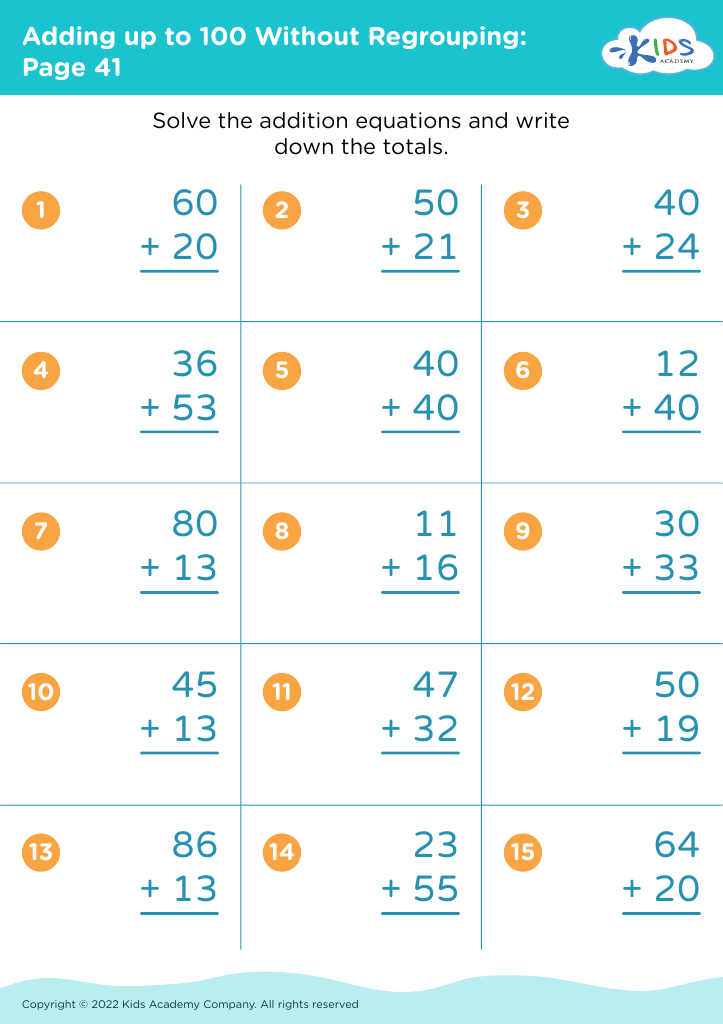Developing analysis skills Worksheets for Kids
1 filtered results
-
From - To
Question/Answer
Why is the Developing analysis skill important for Grade 2 students?
Developing analysis skills in Grade 2 students is essential because it lays the foundation for critical thinking and problem-solving abilities. At this early stage, honing these skills enhances their understanding, enables them to make connections between concepts, and fosters curiosity and independent learning. It prepares them for more complex tasks and academic challenges ahead, contributing to their overall cognitive development.
What does the Developing analysis skill mean when it comes to Grade 2 Adding up to 100 Without Regrouping learning?
Developing analysis skill in the context of Grade 2 Adding up to 100 Without Regrouping means teaching students how to break down and understand problems involving addition up to 100.
How does the mastery of the Developing analysis skill affect a student's performance at an early age?
Mastery of the Developing analysis skill at an early age significantly enhances a student's performance by improving critical thinking, problem-solving abilities, and comprehension. It fosters a deeper understanding of concepts, encourages curiosity, and enables the application of knowledge in diverse contexts. These skills contribute to academic success, better decision-making, and increased adaptability in learning environments.













